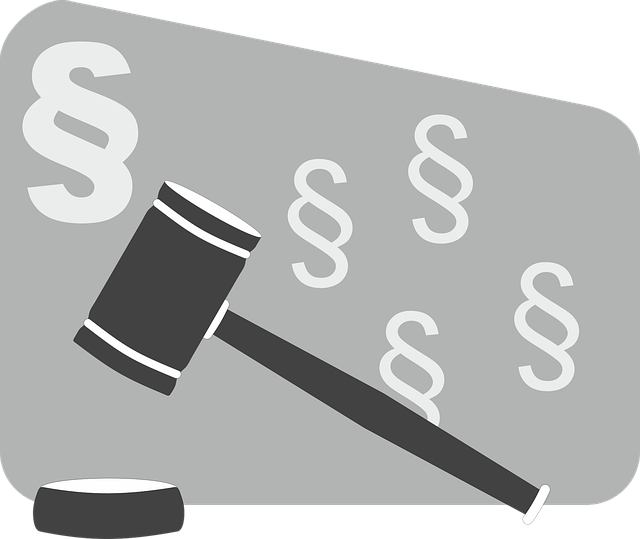Regulatory Fraud Laws protect consumers and investors through defining fraud as intentional deception for gain, with specific terms like "material" and "intentional." Class Action Lawsuits combat this by allowing individuals or groups to join forces under federal or state securities laws, seeking justice against fraudulent corporations. Eligibility requires showing financial harm due to the defendant's activities, supported by evidence. Navigating complex legal barriers is crucial; standing ensures direct harm, while jurisdiction determines the appropriate court. Understanding these requirements is key to successful class action lawsuits and related criminal defenses.
Regulatory fraud laws play a pivotal role in protecting investors and maintaining market integrity. This article delves into the intricacies of these laws, focusing on key definitions, class action suits, eligibility requirements, and navigating legal barriers. Understanding these aspects is crucial for both individuals and entities looking to protect their interests in today’s complex financial landscape. By examining real-world cases, we explore how to prove loss and damages, ensuring compliance with standing and jurisdiction rules, particularly in the context of Class Action Lawsuit Eligibility Requirements.
- Understanding Regulatory Fraud Laws: Key Definitions & Scope
- Class Action Suits: Who Can Bring a Claim?
- Eligibility Requirements: Proving Loss & Damages
- Navigating Legal Barriers: Standing & Jurisdiction
Understanding Regulatory Fraud Laws: Key Definitions & Scope
Regulatory Fraud Laws are designed to protect consumers and investors from deceptive practices by businesses and individuals. Understanding these laws requires a grasp on key definitions and their scope. Fraud, at its core, refers to intentional deception aimed at gaining financial or personal advantage. In the context of regulations, it involves misrepresenting or concealing material facts related to products, services, or financial transactions. Key terms like “material” and “intentional” are crucial here; a statement is considered fraudulent if it’s likely to influence a decision-maker’s behavior.
The scope of these laws is extensive, covering various industries and sectors across the country. When individuals or entities fall victim to fraudulent activities, they may have grounds for a class action lawsuit. Eligibility requirements vary but typically involve demonstrating harm, causation, and a common set of circumstances that affect a defined group. These lawsuits seek complete dismissal of all charges against innocent parties, ensuring justice and providing a powerful tool for holding wrongdoers accountable.
Class Action Suits: Who Can Bring a Claim?
Class Action Suits, a powerful tool in fighting regulatory fraud, are brought by individuals or groups who share a common interest in seeking redress for violations of federal or state securities laws. To be eligible to bring such a claim, plaintiffs must meet specific criteria outlined in the relevant legislation. Typically, this includes being a current or former investor in a company that has allegedly committed fraudulent activities, and sustaining financial losses as a direct result.
Unlike individual lawsuits, which can be costly and time-consuming, class action lawsuits pool resources and share legal fees. This makes it accessible to investors who might not otherwise have the means to take on large corporations in high-stakes cases. With an unprecedented track record of securing substantial settlements for affected parties, these suits not only provide financial compensation but also serve as a deterrent, sending a clear message to businesses operating within philanthropic and political communities that fraud will not be tolerated.
Eligibility Requirements: Proving Loss & Damages
Proving loss and damages is a crucial step for individuals or groups looking to establish eligibility for a class action lawsuit under regulatory fraud laws. In order to be part of such a lawsuit, plaintiffs must demonstrate that they have suffered financial harm due to the fraudulent activities of a defendant. This often involves presenting concrete evidence of economic losses, such as records of transactions, receipts, or other financial documents that show the extent of the damage.
The complexity of these cases demands a skilled legal team experienced in navigating high-stakes cases and winning challenging defense verdicts for his clients. By meticulously gathering and analyzing data related to the fraud, lawyers can help plaintiffs secure just compensation for their losses. This process is critical not only for achieving financial redress but also for holding wrongdoers accountable and ensuring that such fraudulent practices are deterred in the future.
Navigating Legal Barriers: Standing & Jurisdiction
Navigating complex legal barriers is an essential step when considering a Class Action Lawsuit under Regulatory Fraud laws. To be eligible for such a lawsuit, plaintiffs must meet specific standing and jurisdiction requirements. Standing refers to the legal right to file a claim, ensuring that the plaintiff has suffered a tangible injury and can demonstrate direct harm caused by the fraudulent activity. This is crucial in establishing their place in the case and potential compensation.
Jurisdiction, on the other hand, pertains to the court’s authority to hear the case. With Regulatory Fraud cases, this often involves navigating across the country to find the appropriate court with jurisdiction over the fraudulently engaged companies or individuals. Understanding these legal concepts is vital as it can significantly impact the success and scope of any class-action lawsuit, and may even affect strategies for avoiding indictment in general criminal defense cases related to fraud.
Regulatory fraud laws play a crucial role in protecting investors and consumers from deceptive practices. By understanding key definitions, class action lawsuit eligibility requirements, and navigating legal barriers, individuals can effectively pursue justice. These laws empower citizens to hold wrongdoers accountable, ensuring fairness and transparency in today’s complex economic landscape. When considering a Class Action Lawsuit based on Eligibility Requirements, it’s essential to consult legal experts for guidance.






